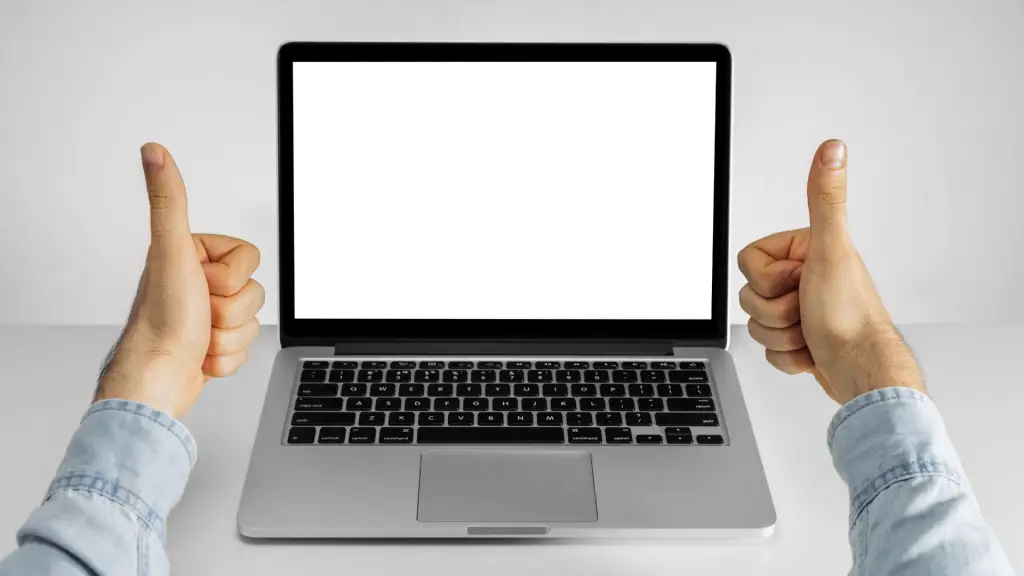Laptops have become the most important devices in modern life. They’re used for everything from work, to entertainment so it’s not surprising that laptop screens are one of their main features and also the part which can be damaged easiest. So what do you think? Do laptops need screen protectors or would they just cause more issues than they solve?
Screen protectors are a great investment for laptop users. They can prevent scratches and finger smudges that could happen without one, but they also offer protection in the event of an accident where your device falls or is dropped on its screen.
Screen protectors help to extend the life of laptops by reducing wear and tear caused by everyday use like fingerprints, sweat from hands when typing, or even just brushing up against it with our hand if we’re near other people’s computers as well!

What are Screen Protectors?
Screen protectors are sheets of a thin, see-through material that covers the top of your laptop screen. They come in various forms and are manufactured in a variety of different materials designed for specific kinds of laptops as well as tablets and smart-phones, but they all have the same function; to prevent scratches on your laptop screen which can lead to serious issues for the device.
There is no doubt that the protective coatings on these display covers should help keep your laptop’s screen safe from harm. However, there are also other benefits of a screen protector that justifies its necessity to increase the longevity of your computer’s display.
Benefits of Having a Screen Protector
The protective sheet for your display will not only prevent possible damage but can lessen the effects of common accidents that may occur when it’s in use, like a fall or a knock. The top 3 benefits of using screen protectors are:
1 – Protection
Protects against scratches and scuffs on laptop screen and casing as well as dirt and dust which may accumulate after use or during transportation. Additionally, prevents the screen from being marked if you have to place your laptop face down on a desk or table.
2 – Anti-glare Effect
Provides a matte screen finish which gives greater visibility and less reflection in bright lights. This can also benefit your eyesight by reducing eye fatigue when you are viewing the screen for extended periods of time.
3 – Fingerprint Resistant
Screens can get very dirty over time because of everyday use and touching it with your fingers. It’s common for fingerprints to be left everytime you touch the screen, which can negatively impact on the laptop’s image quality and overall appearance as well as cause poor readability from glare and reflections.
4 – Serves as a Shield
Screen protectors can help guard your laptop screen against breaking when it’s dropped. They can also prevent damage from those scratches and dents that appear over time if you don’t have a protector on it. Using a protective cover will extend the life of your display glass by reducing wear and tear which will result in saving money on repairs.
5 – Privacy
Screen protectors prevent onlookers from seeing what is on your screen, this ensures privacy for you or those who use your laptop. They’re perfect for students as well as business professionals and can also be used if you are studying or working in public places to prevent others prying into your work.
What Kind of Laptop Screen Protectors Are There?
If you spend a little time online scouring the net for laptop screen protectors then you’ll find there are many different types, and it can be daunting to navigate through all the options so I have compiled a list here that highlights some of the main types you’ll come across.
1 – PET (Polyethylene terephthalate)
These are thin plastic sheets that can be found on most laptops and other devices, but they’re not designed for each device so it’s important to ensure your screen protector is specially made to fit your laptop. They come in a variety of different thicknesses and are generally cheaper than other types so they are very popular.
2 – LCD (Liquid Crystal Display) Screensavers
This type of screen protector is made from a special set of materials that prevent glare while still allowing the user to see what’s on the laptop display. It’s more expensive than the PET variety but it’s a great way to maintain the quality of the screen and protect it from scratches.
3 – Tempered Glass Screen Protectors
They’re made up of 2 pieces of strong but flexible glass bonded together with a thin layer of silicone in between them, which also helps prevent indentations and other damage caused by bumps or drops. This is considered as one of the best types of screen protector to have as they’re very strong and durable.
4 – Anti-Glare Filters
These are generally cheaper than other options but depending on your model, may not be compatible with your laptop or device. They also reduce the clarity of images being viewed by using a matte finish which reduces reflections, glare and fingerprints so it’s a good choice for anyone who spends a lot of time in direct sunlight.

Conclusion
If you’re wondering if you really need a screen protector, then the answer is probably yes. Screen protectors are a great investment to make as they prolong the life of your laptop’s display and ensure longer use.
They’re inexpensive and can provide multiple benefits to your laptop including reduced glare reflection, fingerprints and scratches so they’re well worth having and are considered as key protection features for laptops.
Before choosing which type of laptop screen protector to use however, make sure it’s designed to fit your device otherwise you may find it doesn’t sit correctly or has poor adhesive properties.
